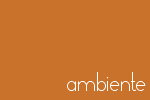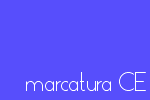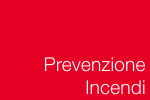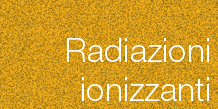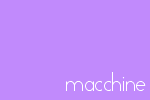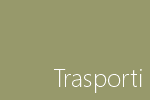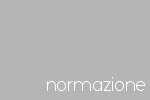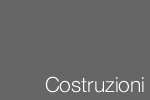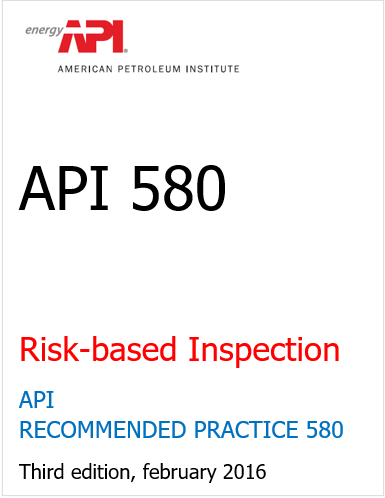API 580 - Risk Based Inspection
ID 14693 | 06.10.2021
API RP 580-2016 (3rd Edition) is the latest update on the Risk-based Inspection (RBI) practice. This code provides guidance on developing a Risk-based Inspection (RBI) program for fixed equipment and piping in the hydrocarbon and chemical process industries.
This recommended practice (RP) is intended to provide guidance on developing a Risk-Based Inspection (RBI) program for fixed equipment and piping in the hydrocarbon and chemical process industries. It includes:
a) what is RBI,
b) what are the key elements of RBI,
c) how to implement an RBI program,
d) how to sustain an RBI program.
It is based on the knowledge and experience of engineers, inspectors, risk analysts, and other personnel in the hydrocarbon and chemical industry.
Shall: As used in a standard, “shall” denotes a minimum requirement in order to conform to the specification.
Should: As used in a standard, “should” denotes a recommendation or that which is advised but not required in order to conform to the specification.
This RP is intended to supplement API 510, API 570, and API 653. These API inspection codes and standards allow an owner-user latitude to plan an inspection strategy and increase or decrease the code designated inspection frequencies and activities based on the results of an RBI assessment. The assessment shall systematically evaluate both the probability of failure (POF) and the associated consequence of failure (COF). The POF assessment should be evaluated by considering all credible damage mechanisms. Refer to the appropriate code for other RBI assessment requirements. This RP is intended to serve as a guide for users in properly performing such an RBI assessment.
The information in this RP does not constitute and should not be construed as a code of rules, regulations, or minimum safe practices. The practices described in this publication are not intended to supplant other practices that have proven satisfactory, nor is this publication intended to discourage innovation and originality in the inspection of hydrocarbon and chemical facilities. Users of this RP are reminded that no book or manual is a substitute for the
judgment of a responsible, qualified inspector or engineer.
Nothing contained in any API publication is to be construed as granting any right, by implication or otherwise, for the manufacture, sale, or use of any method, apparatus, or product covered by letters patent. Neither should anything contained in the publication be construed as insuring anyone against liability for infringement of letters patent.
This document was produced under API standardization procedures that ensure appropriate notification and participation in the developmental process and is designated as an API standard. Questions concerning the interpretation of the content of this publication or comments and questions concerning the procedures under which this publication was developed should be directed in writing to the Director of Standards, American Petroleum Institute, 1220 L Street, NW, Washington, DC 20005. Requests for permission to reproduce or translate all or any part of the material published herein should also be addressed to the director.
Generally, API standards are reviewed and revised, reaffirmed, or withdrawn at least every five years. A one-time extension of up to two years may be added to this review cycle. Status of the publication can be ascertained from the API Standards Department, telephone (202) 682-8000. A catalog of API publications and materials is published annually by API, 1220 L Street, NW, Washington, DC 20005.
Suggested revisions are invited and should be submitted to the Standards Department, API, 1220 L Street, NW, Washington, DC 20005,
Licensee=Marathon Petroleum Co. LP/0320300001
Collegati




